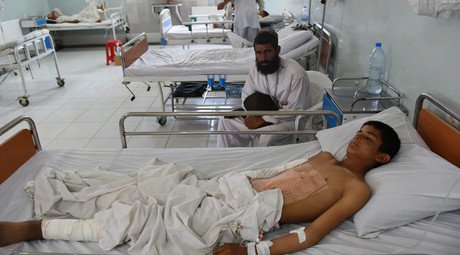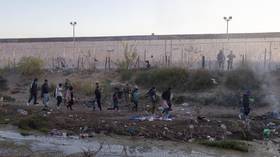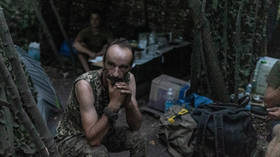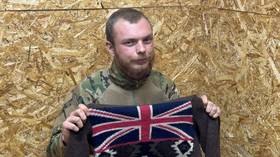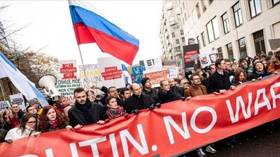Hospitals still ‘part of the battlefield’ 1yr after US airstrike on MSF facility in Afghanistan
One year ago, an MSF hospital in Kunduz, Afghanistan was hit by over 200 shells during an infamous US airstrike which killed 42 people including three children. Medical facilities continue to be “part of the battlefield,” according to Doctors Without Borders.
Speaking to reporters in Kabul on the anniversary of the deadly Kunduz strike, MSF president Meinie Nicolai said the organization has “recorded 77 attacks against medical facilities operated or supported by MSF in Syria and Yemen.”
3 October marks 1 year since attack on #Kunduz Trauma Centre in #Afghanistan that left 42 dead & deprived region of medical care #NotATargetpic.twitter.com/3urrKwqQRU
— MSF International (@MSF) October 1, 2016
Calling the situation “unprecedented,” Nicolai said that “hospitals are now part of the battlefield,” AFP reported. Most of the facilities, according to Nicolai, are targeted “in the name of war against terrorism.” She noted that attacks against civilian medical centers and ambulances are “systematic” in Syria.
One year after the Kunduz attack, the organization is still not back in the Afghan city, and has also left northern Yemen. The organization said it is struggling “to give support to the people of Syria.”
The Kunduz attack prompted a rare apology from President Barack Obama at the time, but former CIA officer Jack Rice told RT that there is “no excuse” for the deadly assault.
“…What we find is that Doctors Without Borders made it very clear to all sides exactly where they were, so the Americans have absolutely no excuse whatsoever, when it comes to the airstrike in this particular case,” Rice said.
According to MSF, the Kunduz raid, conducted by an AC-130 gunship, lasted nearly an hour and left patients burning in their beds. Some were decapitated, while others suffered amputations as a result of the strike.
Although the organization has called the attack a war crime, the US military concluded in an investigation earlier this year that the troops responsible would not face war crimes charges because the airstrike was a mistake.
Guilhem Molinie, MSF country representative in Afghanistan, said he had access to 700 of the 3,000 pages of the US report on Kunduz. The rest are classified.
#Yemen 4 of our healthcare facilities were hit by airstrikes and shelling in the past year https://t.co/oT0pC843Fr#NotATargetpic.twitter.com/VqMK9QqzrF
— MSF International (@MSF) October 2, 2016
“The US forces, operating in Kunduz on that date, assumed that self-defense was allowing them to attack,” he said. “The entire city of Kunduz was judged as hostile. This is extremely shocking for us which means that everybody in the city on the date was assumed to be hostile.”
MSF has repeatedly called for an independent international inquiry into the incident.
